From Ash to Walnut: A Guide to Choosing the Perfect Wood Species
A look into the varying hardness of wood species
Hardwood Species
Hardwood furniture is getting difficult to find and the furniture you find at a big box store is cheaply made abroad, with MDF veneer or the more sly engineered hardwood used that looks like hardwood, as well as made with cheap labor and finished with toxic finishes.
Here is a list of our most popular hardwoods, in order from least expensive to most expensive. Depending on your budget, you can select your preferred wood species to make a dining table.
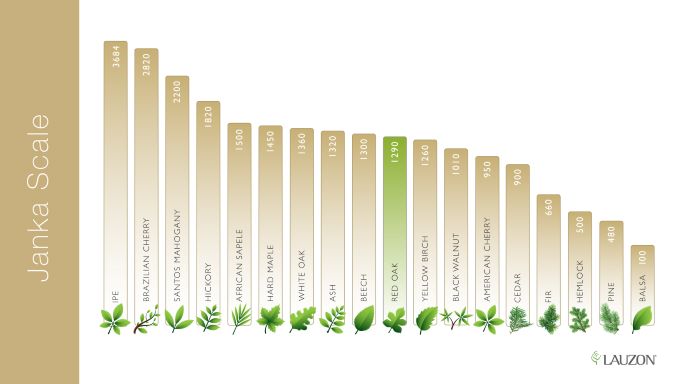
Janka is a measurement of the hardness of wood and it varies from the Brinell hardness test. This test measures the amount of force needed to force a steel ball with a diameter of 11.28 millimeters (0.444 inches) into the wood with a depth of half the ball's diameter. This was done because the surface area is 100 square millimeters, the preferred measuring unit. The harder the wood, the higher the Janka Scale.
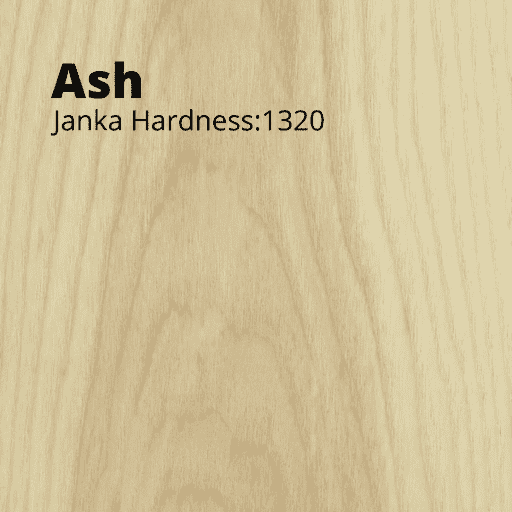
Ash
Janka hardness: 1320
Ash wood can be found in items such as furniture, but it is most notably used in baseball bats.
The tree can be found in North America. A Ash tree that grows in the North is known for producing the sturdiest lumber of this type of wood. On the other hand, an Ash tree that grows in the South is typically softer because of its higher sap content.
In general, Ash is hard, heavy, and strong. Due to higher ratio of heartwood in northern North American wood, Ash tends to be browner in color.
Frequently, ash trees are substituted for red oak trees. Not only is it excellent for how tough it is, but it is also an interesting canvas in its purity. Ash has a white undertone makeing it a great wood to tent to the color that is of your choosing.
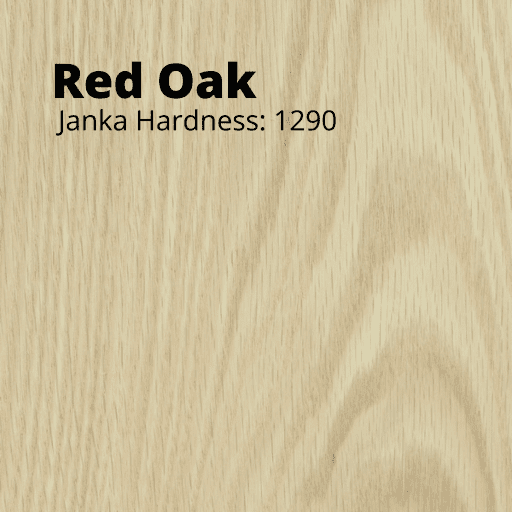
Red Oak
Janka Harness: 1290
Wood from an oak tree is prized for its strength, the uniformity of its shape, and the beauty of its grain.Oak wood is the timber taken from an oak tree, which is a hardwood.
There are over 600 types of oak, but red oak and white oak are best for woodworking projects. Oak is perfect for making cabinets, furniture, and flooring, as it is hard and durable, and it has an elegant color that depends on the species of tree from which it was cut.
The colors of white oak ranges from light gray to dark brown. Red oak colors range from dark pink to dark brown.
Thanks to its open pores, oak wood accepts tinted oils easily which brings out the color variations found within each single piece of wood.
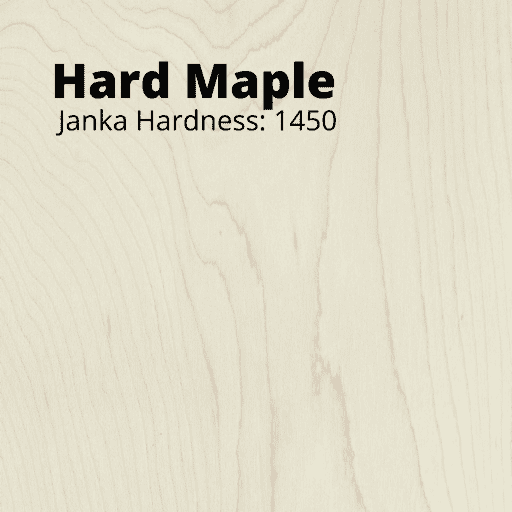
Hard Maple
Janka Hardness: 1450
Hard Maple grown in the Northwestern region comes from two different areas: the Appalachian region and the Glacial region.
While the sapwood is admired for its cream color and the even texture, the grain pattern is typically straight but sometimes occurs as "birds-eye", "curly", and "fiddleback" grain. The beauty and sturdiness of hard maple make it a favorite for flooring, cabinetry, and furniture.
Hard Maple tends to accept less stain than other wood types we offer, because the grain is tight and there is less wood pores to accept stain.
Prior to choosing Hard Maple, please reach out to see some finished samples of the color you are considering.
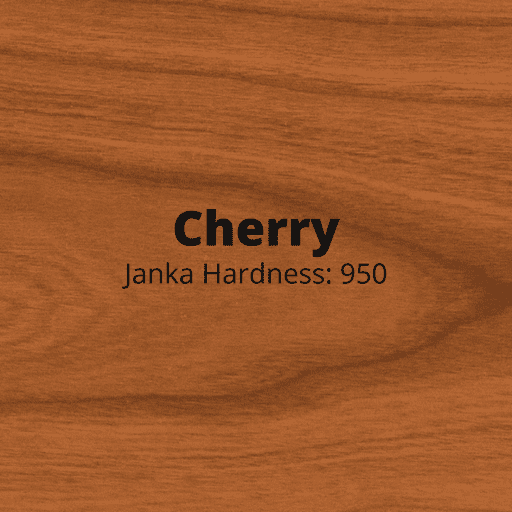
Cherry
Janka Hardness: 950
The wood of cherry trees is sought after because it is beautiful and relatively hard, and is popularly used for the construction of cabinets and tables.
There are many color variations of cherry wood, including red, brown, yellow, and white. Darker varieties are often more ornate, while lighter shades are often found in furniture. One reason why it was used so often by colonial furniture makers was because it is very strong and durable. Cherry wood has a smoother and silkier texture to it. Woodworkers enjoy cherry wood for its beautiful coloring, even grain, and bendable qualities. Cherry wood is often less expensive than other dark colored hardwoods, making it a great option for a beautiful furniture piece. Cherry can be tinted some to match a decorator's preference. It's worth noting that this color will inevitably impart a red tint to any finish or stain.
Cherry is known for its oxidation process which causes it to darken over time.
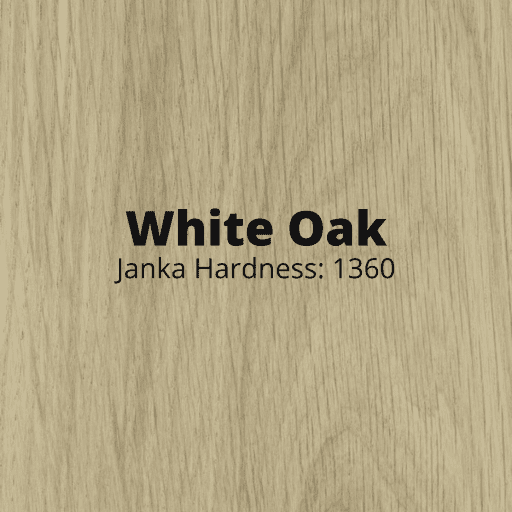
White Oak
Janka Hardness:1360
White Oak trees are grown in both the Appalachian and Glacial regions.
Robust, and rot-resistant it is very valuable in terms to craftsmen for use in the production of their goods like furniture and flooring. The White Oak's sapwood is lighter than its heartwood, and the latter ranges from light to dark brown. It has an open grain and a coarse texture, it's a known as a fast-grown oak,making it the strongest and heaviest of the oak family.
White oak is especially significant in Kentucky where it is most commonly used for bourbon barrels.With its tan brown color, this wood looks great in its natural state.
If you are planing to have your piece stained a color it is best to go with red oak since after coloring there will be little difference in apperance but with a much lower cost.

Wlanut
Janka Hardness: 1010
Grown in both the Glacial and Appalachian regions of Northwest America.
American Walnut is one of the rarest and most prized native hardwoods in North America. Walnut's sapwood is nearly white, and the heartwood can be light brown to dark brown with a purplish cast. Northwest Walnut is steamed to darken the heartwood and lighten the sapwood. Walnut is strong, heavy, and rigid, with a high shock resistance. It is coarse-textured and has distinctive grain patterns.
No surprise that walnut has been an prized wood for decades, fetching top dollar for furniture and other cabinetry. And who could blame people for wanting it - any piece you make guest marvel and will be an heirloom piece.
Collections
-
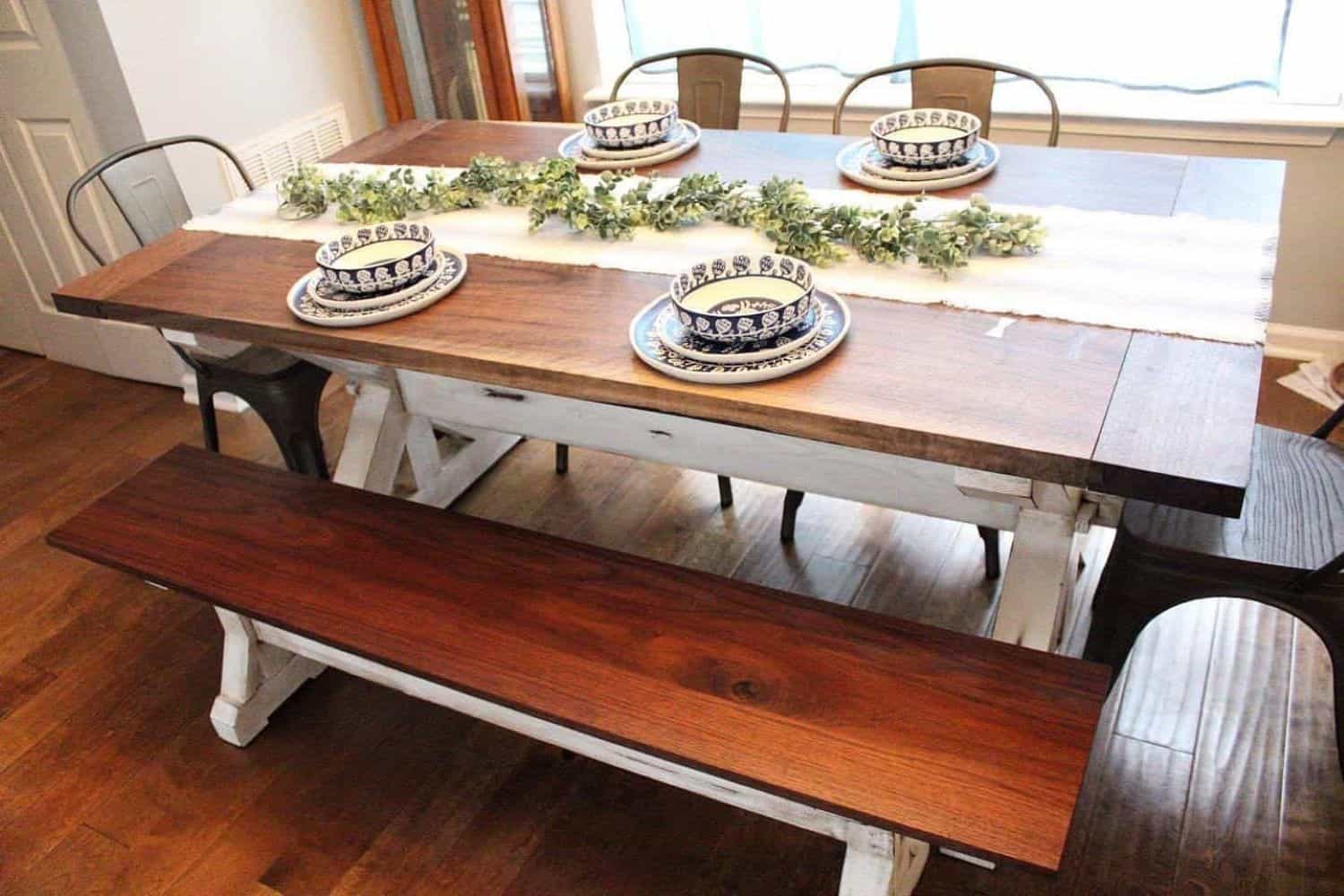
Handmade Tables: Dining Tables, Coffee Tables, and more
Beautiful handmade Accent, Coffee, and Dining tables made in Kentucky. Made with...
-
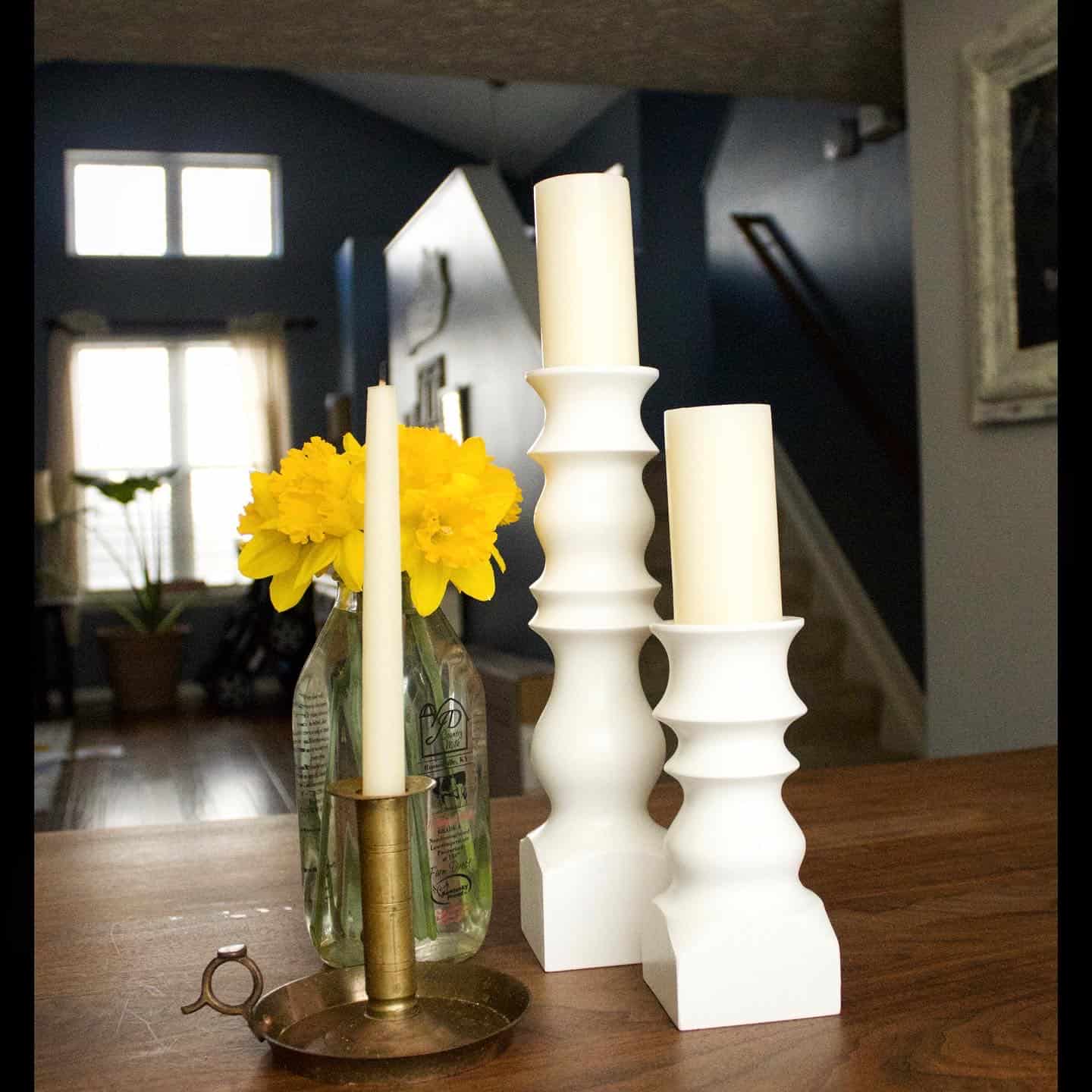
Handmade Décor by Clines Crafted Woodworking LLC
You're going to love our home décor collection! Ranging from door hangers,...
-
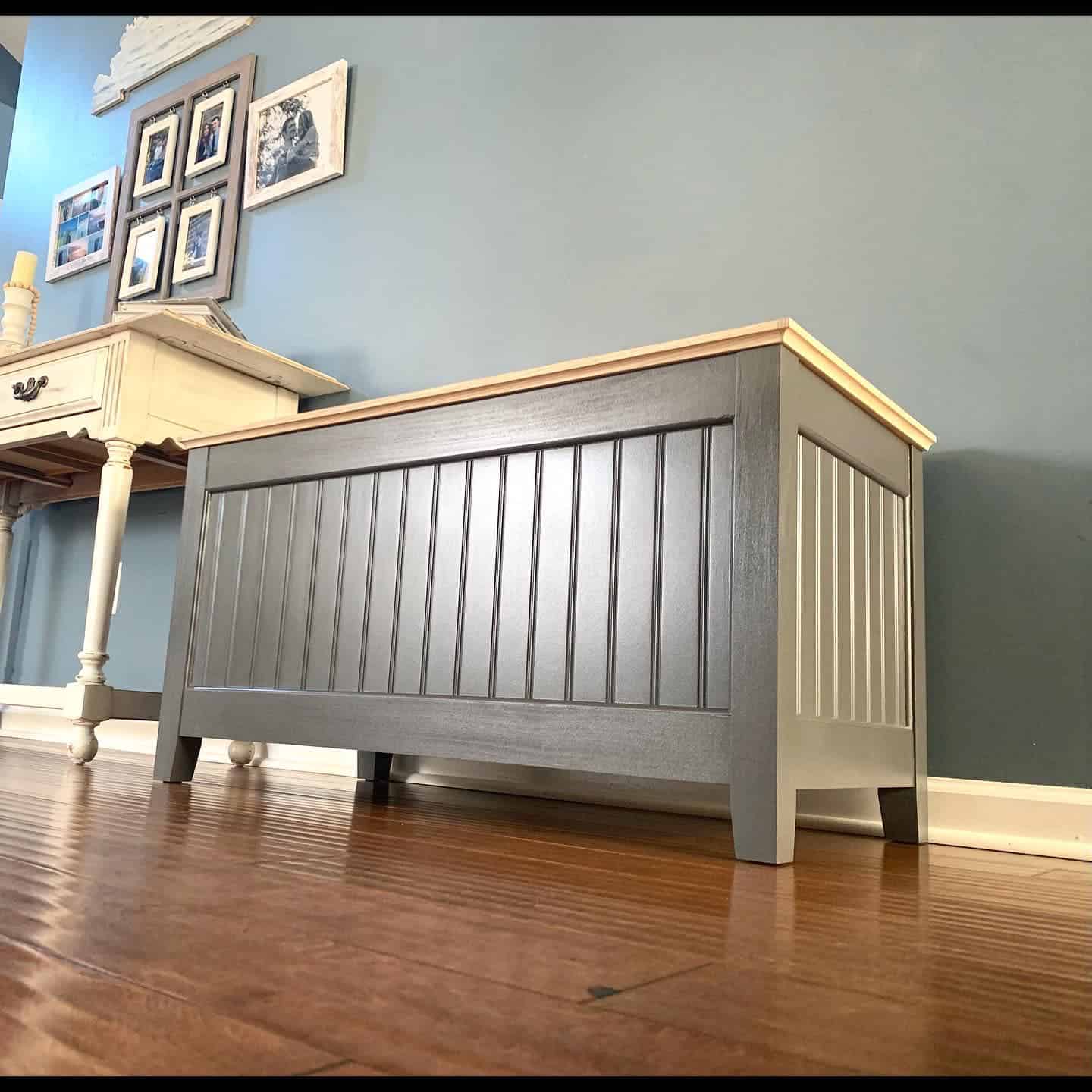
Bedroom Furniture handmade by our Craftsmen in Kentucky.
We make all of our furniture in-house by hand. All of the...
CCW Blog: Published by our team of Craftsmen in Kentucky.
View all-
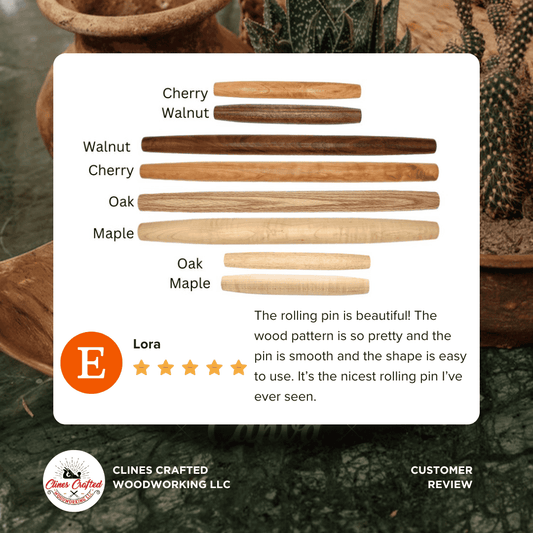
Why Choose Handmade? The Value of Craftsmanship...
Discover the art and craftsmanship behind Clines Crafted Woodworking's handcrafted rolling pins. Each piece is more than just a tool—it's a testament to traditional woodworking, modern design, and a passion...
Why Choose Handmade? The Value of Craftsmanship...
Discover the art and craftsmanship behind Clines Crafted Woodworking's handcrafted rolling pins. Each piece is more than just a tool—it's a testament to traditional woodworking, modern design, and a passion...
-
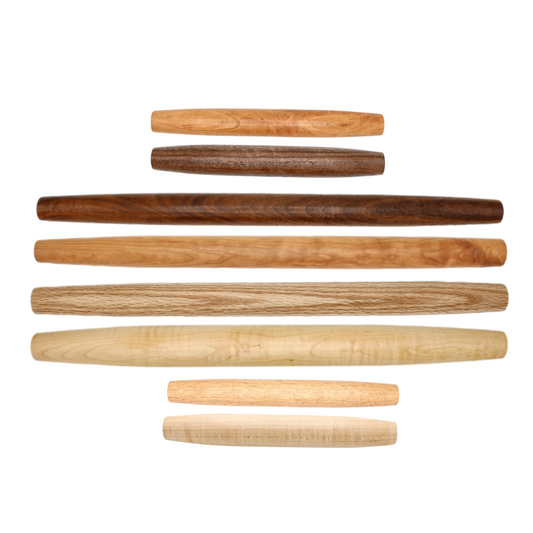
Master the Art of French Baking with the Right ...
Discover the art of French baking with Clines Crafted Woodworking's handcrafted French rolling pins. Learn how our Kentucky-made, sustainably sourced wooden pins can elevate your baking experience. Explore now!
Master the Art of French Baking with the Right ...
Discover the art of French baking with Clines Crafted Woodworking's handcrafted French rolling pins. Learn how our Kentucky-made, sustainably sourced wooden pins can elevate your baking experience. Explore now!
-

Elevate Your Front Door Decor with a Custom Woo...
Spring is nearly here and it's the perfect time to spruce up your front door decor! One easy and elegant way to do this is by adding a wooden monogram...
Elevate Your Front Door Decor with a Custom Woo...
Spring is nearly here and it's the perfect time to spruce up your front door decor! One easy and elegant way to do this is by adding a wooden monogram...






